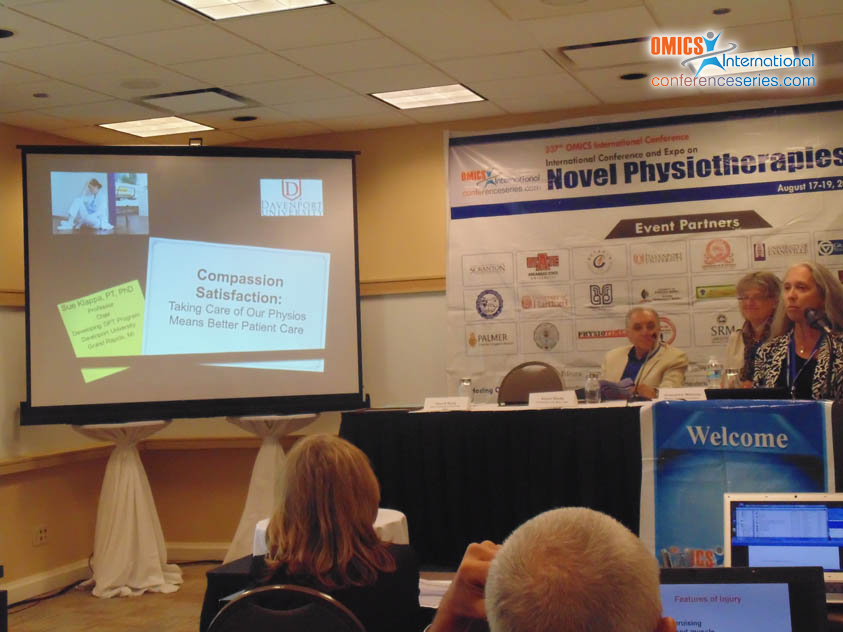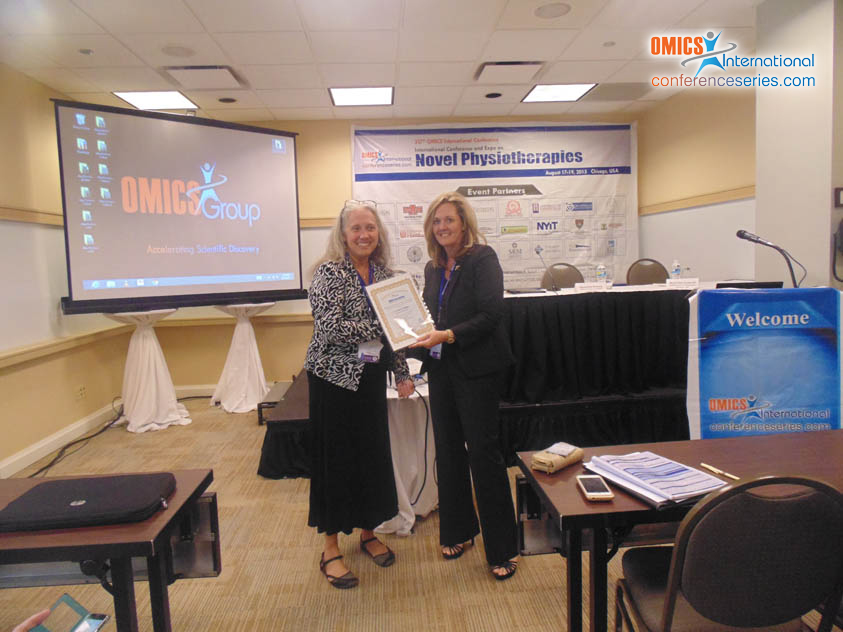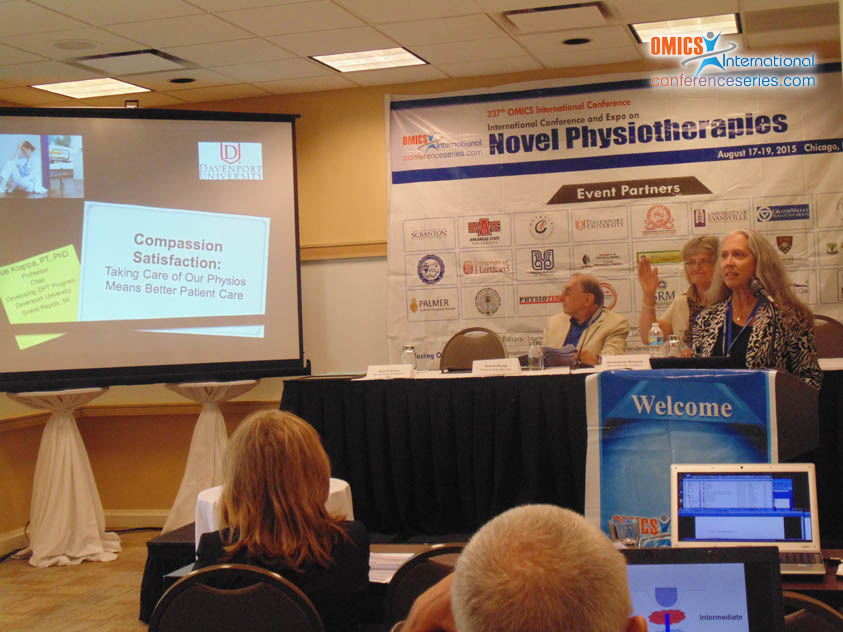
Susan G Klappa
Davenport University ,USA
Title: Compassion satisfaction- Taking care of our physios means better patient care
Biography
Biography: Susan G Klappa
Abstract
Compassion fatigue (CF) involves demonstrating less compassion toward those being cared for by the professional. Many physiotherapists and physical therapists (PTs) love their jobs and what they do, exhibiting great compassion satisfaction (CS). However, many are subjected to the stresses of their job resulting in burnout (BO) and secondary trauma (ST) which are constructs of CF. Therapists often report being less compassionate toward their patients when feelings of CF emerge. Recognizing the signs and symptoms of CF is important for the wellbeing of therapists and in providing quality patient care. Results from three studies will be discussed examining the levels of CS, BO, ST as well as the relationship of these constructs to CF among physiotherapists and physical therapists around the world involved in various settings, disaster relief work, and among new graduates. What are the average levels of CS, CF, BO, and STS among therapists around the world? How does CF among therapists vary in regions impacted by disaster, war, and civil unrest as well as in urban versus rural areas? What strategies do therapists use for mitigating CF? Mixed methods utilizing the Professional Quality of Life (ProQOL) survey and phenomenological interviews were used to answer the questions. The experiences of our participants indicated that many PTs were aware of CF. Constructive strategies and self-care behaviors were articulated for mitigating levels of CF. By better understanding CF and the relationship with CS, BO, and ST in the healthcare environment may help PTs develop better coping strategies for mitigating CF.However, many are subjected to the stresses of their job resulting in burnout (BO) and secondary trauma (ST) which are constructs of CF. Therapists often report being less compassionate toward their patients when feelings of CF emerge. Recognizing the signs and symptoms of CF is important for the wellbeing of therapists and in providing quality patient care. Results from three studies will be discussed examining the levels of CS, BO, ST as well as the relationship of these constructs to CF among physiotherapists and physical therapists around the world involved in various settings, disaster relief work, and among new graduates. What are the average levels of CS, CF, BO, and STS among therapists around the world? How does CF among therapists vary in regions impacted by disaster, war, and civil unrest as well as in urban versus rural areas? What strategies do therapists use for mitigating CF? Mixed methods utilizing the Professional Quality of Life (ProQOL) survey and phenomenological interviews were used to answer the questions. The experiences of our participants indicated that many PTs were aware of CF. Constructive strategies and self-care behaviors were articulated for mitigating levels of CF. By better understanding CF and the relationship with CS, BO, and ST in the healthcare environment may help PTs develop better coping strategies for mitigating CF.
Speaker Presentations
Speaker PDFs
Speaker PPTs Click Here



